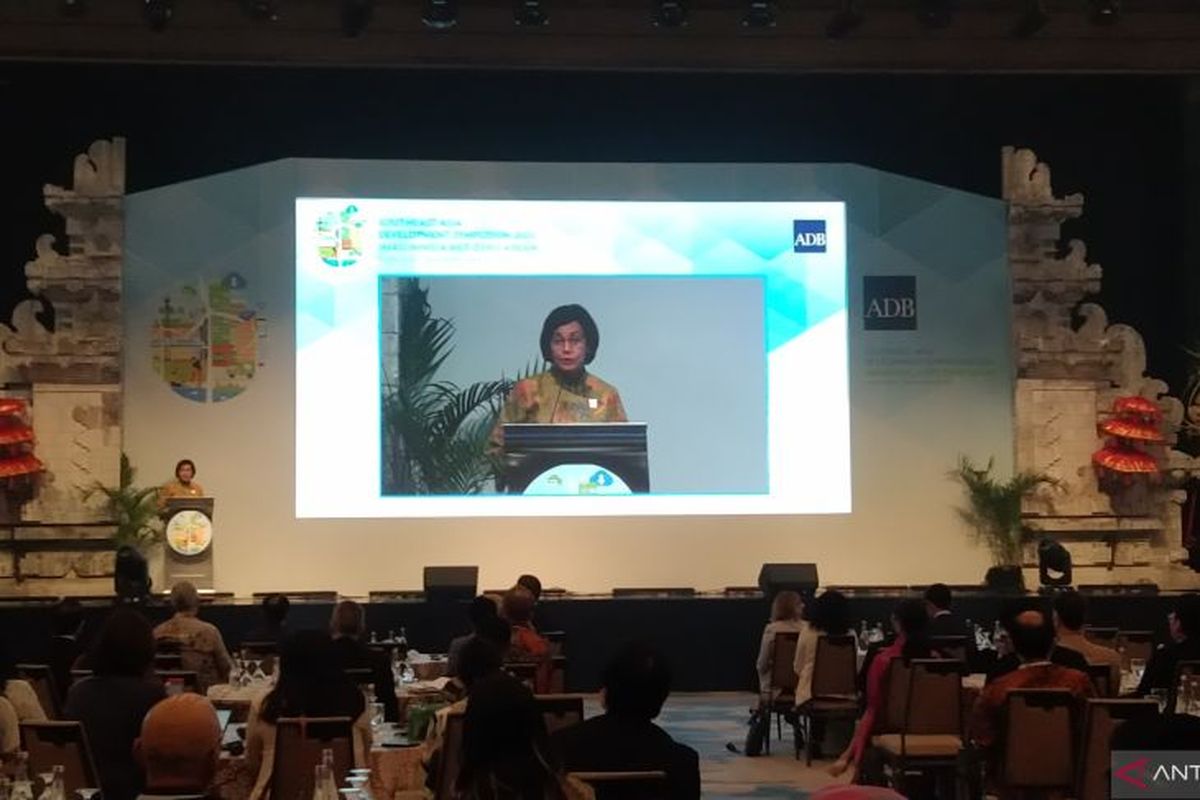Gov't Disburses Investment Worth 313 Trillion Rupiah to Cut Carbon Emissions

NUSA DUA, KOMPAS.com – Indonesia’s Finance Minister Sri Mulyani Indrawati highlighted that the government had disbursed 313 trillion rupiah ($20.8 billion) in funds until 2021 for meeting investment needs in pursuit of reducing carbon emissions.
"This is only eight percent of the total investment requirement," Sri Mulyani said during the Asian Development Bank (ADB) symposium on Thursday, March 30.
The minister said that Indonesia's total investment needs to support the nationally determined contribution (NDC) in reducing carbon emissions is around 4,002 trillion rupiah ($281 billion) by 2030.
Earlier, the government had increased its emission reduction commitment from 29 percent to 31.89 percent with its own efforts and from 41 percent to 43.2 percent with international assistance.
Also read: Developing Countries Need Financial Support in Energy Transition, Says Jokowi
Earlier, the Indonesian government had submitted a revised commitment to reducing carbon emissions to the United Nations Climate Change Secretariat (UNFCCC).
To meet the investment needs to support the NDC target, the former managing director of the World Bank invited private participation, both domestic and international to philanthropists, to contribute to supporting this commitment.
"The Indonesian government has issued a number of innovative fiscal and financing incentives to close this gap in investment needs," Sri Mulyani said.
Incentives in the taxation sector include giving tax holidays, tax allowances, value-added tax facilities, and property taxes.
Also read: Fiscal Instruments Can Sustain Economic Slowdown, Says Indonesian Finance Minister
The minister stated that Indonesia had also issued investment instruments related to environment-friendly investments – Green Sukuk and Sustainable Bonds (SDG Bonds) – both at the domestic and international levels.
She expressed optimism that the two instruments would help in achieving the goal of reducing emissions by 10.6 million tons of carbon dioxide (CO2).
The finance minister emphasized the need for emission reduction commitments to be supported by carbon trading policies and carbon taxes.
"This policy will use carbon trading and non-trading instruments, including carbon taxes, to internalize the external costs of greenhouse gas emissions," she said.
Source: State News Antara
Simak breaking news dan berita pilihan kami langsung di ponselmu. Pilih saluran andalanmu akses berita Kompas.com WhatsApp Channel : https://www.whatsapp.com/channel/0029VaFPbedBPzjZrk13HO3D. Pastikan kamu sudah install aplikasi WhatsApp ya.






























